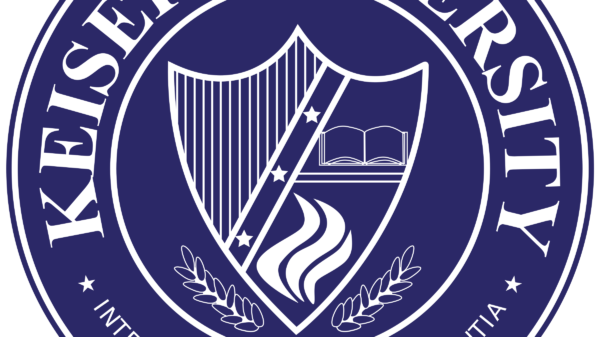Assignments are a fundamental component of education at all levels, from elementary school to higher education. They serve as a way for educators to assess students’ understanding of the material, encourage critical thinking, and reinforce learning. However, not all assignments are created equal. To truly benefit both educators and students, effective assignment must be meaningful and effective. In this comprehensive guide, we will explore the key principles and strategies for creating assignments that promote learning, engagement, and growth. Whether you are a teacher looking to design better assignments or a student seeking to excel in your coursework, this article has something valuable to offer.
Understanding the Purpose of Assignments
Defining Assignments:
Before we dive into the specifics of creating effective assignment, let’s start by defining what assignments are. Assignments are tasks or projects given to students by educators to assess their understanding of course material, encourage critical thinking, and enhance their skills and knowledge.
The Role of Assignments in Learning:
Assignments play a crucial role in the learning process. They offer students opportunities to apply what they have learned in class, engage with the material on a deeper level, and receive feedback on their progress.
The Importance of Clarity:
One of the fundamental principles of creating effective assignment is clarity. Assignments should be clear in their instructions, expectations, and objectives. Ambiguity can lead to confusion and hinder students’ ability to complete assignments successfully.
Key Elements of Effective Assignments
Clear Learning Objectives:
The foundation of any meaningful assignment is a clear set of learning objectives. These objectives should outline what students are expected to achieve by completing the assignment.
Alignment with Learning Outcomes:
Assignments should align with the broader learning outcomes of the course or curriculum. They should contribute to the overall goals of the educational program.
Relevance to Real-World Applications:
Assignments that connect classroom learning to real-world applications are more likely to engage students and motivate them to excel.
Consideration of Diverse Learning Styles:
Educators must consider the diverse learning styles and abilities of their students when designing assignments. Providing options for students to demonstrate their understanding in various ways can enhance inclusivity and engagement.
Types of Assignments
Written Assignments:
Written assignments, such as essays, research papers, and reports, are among the most common forms of academic tasks. They require students to organize their thoughts, conduct research, and communicate their ideas effectively in writing.
Group Projects:
Group projects promote collaboration and teamwork. They require students to work together to achieve a common goal, simulating real-world scenarios where cooperation is essential.
Presentations:
Oral presentations challenge students to communicate their knowledge and ideas verbally. They also help develop essential skills in public speaking and presenting information clearly.
Experiential Assignments:
Experiential assignments, such as internships, fieldwork, and laboratory experiments, provide hands-on learning experiences. They allow students to apply theoretical knowledge in practical settings.
Assessments and Tests:
Assessments and tests are used to evaluate students’ understanding of specific concepts or topics. They typically involve questions or problems that require short answers or essays.
Designing Assignments that Foster Critical Thinking
Asking Thought-Provoking Questions:
One effective way to encourage critical thinking is to pose thought-provoking questions in assignments. These questions should challenge students to analyze, evaluate, and synthesize information.
Encouraging Independent Research:
Assignments that require students to conduct independent research promote self-directed learning. Research-based assignments also teach valuable research skills.
Promoting Problem-Solving:
Assignments can be designed to present students with real-world problems or scenarios that require them to develop solutions. Problem-solving assignments enhance students’ analytical and creative thinking abilities.
The Role of Feedback and Assessment
Timely and Constructive Feedback:
Providing timely and constructive feedback is essential for student growth. Educators should offer feedback that highlights strengths and areas for improvement.
Rubrics for Evaluation:
Rubrics are valuable tools for assessing assignments consistently and objectively. They provide clear criteria for evaluation and help students understand what is expected of them.
Self-Assessment and Peer Review:
Incorporating self-assessment and peer review into assignments can enhance the learning process. Students gain valuable insights into their work and learn from their peers’ perspectives.
Leveraging Technology for Assignments
Online Learning Platforms:
The integration of online learning platforms, such as Learning Management Systems (LMS), can streamline assignment submission, grading, and communication between educators and students.
Multimedia Assignments:
Multimedia assignments, which may include videos, podcasts, or interactive presentations, allow students to express their understanding in creative and engaging ways.
Gamification and Interactive Elements:
Gamification elements, such as quizzes and interactive simulations, can make assignments more enjoyable and motivating for students.
Addressing Challenges and Pitfalls
Plagiarism and Academic Integrity:
Educators must address issues related to plagiarism and academic integrity. Clear guidelines and consequences for plagiarism should be communicated to students.
Overloading Students with Assignments:
Balancing the workload is crucial. Overloading students with assignments can lead to burnout and reduced quality of work. Educators should consider the overall workload in their courses.
Mitigating Bias and Stereotypes:
Assignments should be designed with sensitivity to cultural, gender, and socioeconomic differences to create an inclusive learning environment.
Case Studies: Examples of Effective Assignment
High School English Literature Assignment:
In a high school English literature class, an effective assignment might involve reading a classic novel and then asking students to analyze a specific theme or character development in a well-structured essay.
College-Level Science Project:
In a college-level science course, an effective assignment could be a group project where students design and conduct experiments, analyze data, and present their findings to the class.
MBA Group Presentation:
In an MBA program, a valuable assignment might be a group presentation on a business case study. This assignment would require students to apply business theories to real-world situations and communicate their analysis effectively.
Tips for Students: Excelling in Assignments
Time Management:
Effective time management is key to excelling in assignments. Students should set aside dedicated time for research, writing, and revisions.
Seeking Clarification:
If assignment instructions are unclear, students should seek clarification from their educators. It’s essential to have a clear understanding of what is expected.
Collaborating Effectively:
In group assignments, collaboration and communication among team members are crucial. Establishing clear roles and responsibilities can prevent conflicts.
Reflecting on Feedback:
Students should carefully review the feedback provided by educators and use it as a learning opportunity. Understanding areas for improvement can lead to better performance in future assignments.
Dissertation Assignment Help
Dissertations represent the pinnacle of academic assignments, typically undertaken at the graduate or postgraduate level. These comprehensive research projects demand a significant investment of time and effort. Dissertation assignment help services are invaluable for students navigating this challenging academic terrain. They provide guidance in selecting research topics, crafting research proposals, conducting literature reviews, and structuring the dissertation itself. These services also offer support in data analysis, ensuring that the research is statistically sound, and assist in the presentation of findings and conclusions. With the assistance of dissertation assignment help, students can navigate the complexities of their research projects with confidence, ultimately contributing valuable insights to their respective fields of study.
Melbourne Assignment Help
Melbourne, known for its prestigious universities and diverse student population, is a hub for education and research. Students in Melbourne often seek assignment help to excel in their academic pursuits. Melbourne assignment help services cater to the specific needs of students in this vibrant city. They understand the rigorous academic standards and the importance of adhering to Australian academic conventions. These services offer subject-specific assistance, helping students with assignments in fields ranging from business and engineering to humanities and sciences. Moreover, Melbourne assignment help providers are well-versed in local curricula, ensuring that assignments align with the unique requirements of Melbourne’s educational institutions. Whether it’s Monash University, the University of Melbourne, or any other esteemed institution in the city, students can rely on Melbourne assignment help to navigate their academic challenges successfully.
Conclusion: Empowering Learning through Well-Designed Assignments
In conclusion, assignments are a powerful tool for fostering learning, critical thinking, and skill development. When designed with care, they can inspire students to excel and empower educators to assess progress effectively. By understanding the purpose of assignments, incorporating key elements of effectiveness, and leveraging technology and best practices, both teachers and students can benefit from assignments that are meaningful and impactful. Assignments are not just tasks to be completed; they are opportunities for growth, exploration, and enrichment. So, whether you are an educator seeking to enhance your teaching methods or a student striving for academic success, remember that well-designed assignments can be your path to excellence.











